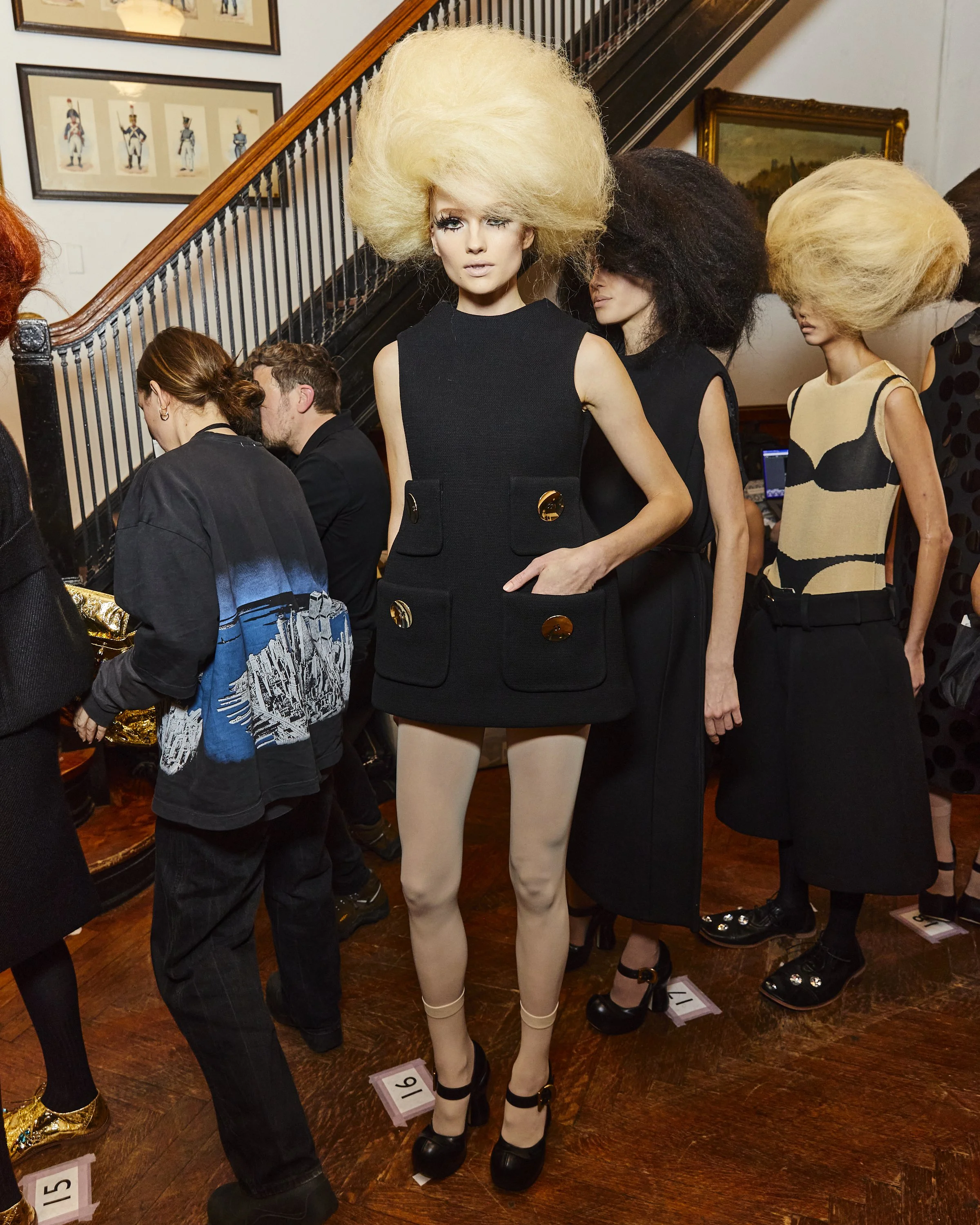Musician Tim Zha of Organ Tapes discusses the themes behind his new releases, Plenty Wine in the Cup and 唱着那无人问津的歌谣, and debuts music video for ‘Submission’.
Listening to a track by Organ Tapes, a music project by Tim Zha, is a bit like holding a fogged over glass bottle close to your eye and discovering a well-manicured terrarium inside. A DIY recording sensibility combining pop melodies and lyrics recited with a hushed reverence like bedside prayers may appear insular and straightforward at first, but closer inspection and repeat listens reveal an intricate landscape of sound drawn from a unique palette of ambient textures and flourishes. Guitars, field recording samples, and layers of autotuned vocals ripple over one another like different streams converging into a single, magnificent waterfall.
This year, Zha released two collections of songs, the EP Plenty Wine in the Cup and an LP, 唱着那无人问津的歌谣 / Chang Zhe Na Wu Ren Wen Jin De Ge Yao, which finds him exploring a more folk and singer-songwriter influenced sound. Notably, the record features significantly more live instrumentation than his previous releases. Over a series of email exchanges, Zha described to me aspects of his songwriting process, relationship to imagery, and how autotune can be seen as a manifestation of “the coincidence of the Worldly and the Heavenly.” You can read our exchange below as well as watch the premiere of the music video for album highlight “Submission”, directed by Zha himself.
Amber Later: You released two projects this year so far (An EP and an LP). Did you work on them at the same time or separately? Did you conceive of them as distinct projects, and if so, what was the difference(s) like in making each for you?
Tim Zha: I recorded the LP much earlier, from late 2019 and throughout 2020. It just takes longer to release music when it's coming out on vinyl. The EP was actually much more recent, recorded end of 2021 and early 2022. I put it out myself with no professional mastering, Spotify distribution or physical release so it was much quicker to release. I didn't conceive of them as distinct projects; I don't really conceive of or plan most of my releases in much depth beforehand, I just make music until I feel a release emerges from what I've made. The LP was what came of the late 2019-2020 time period, and the EP what came after.
Amber Later: You often mention years and dates in your lyrics. For example, on the new record, the reference to “October 2019” in Heaven Can Wait. How do you process time and change as an individual, and how does, if it does, music serve as a means of tracking/organizing/facilitating the passage of time for you?
Tim Zha: The music itself doesn't consciously serve as a means of tracking the passage of time, although the songs often do remind me of the time of my life in which they were made. I try to live in the moment as much as I can though, or try to focus on what is, rather than what has been and is being constantly lost, but the two aren't always easily separable. October 2019 was when I wrote that song and I just felt like situating it there. I like there being acknowledgement that the music emerges in a specific time and place in my life, which itself is constituted by all the other times and places that came before it. That's also part of why I like to use so many recordings of places in the songs too.
Amber Later: In general, what would you say is the relationship between your visuals (both album covers and music videos) and music? Can you tell me anything about the background for the cover art for 唱着那无人问津 的歌谣?
Tim Zha: My preference is always to make my own artwork and videos, really. It's all part of the same practice as the music. I don't see it as too separate. I'm not one of those people who only cares about the music and is happy to hand the artwork or videos to someone else, especially if it's not someone I know and trust. The LP's cover was just something I made from found images. I knew the main image I used in it would be the LP cover for a long time before I actually made it, but I don't know why that was, something just told me "that's the one".
Amber Later: For the cover art from your EP, you chose an image from a poster for Bresson’s film Lancelot du Lac. Does the film have any particular significance to you?
Tim Zha: I just thought it was an incredible film poster and I've always been a fan of Arthurian Legend, particularly Le Morte D'Arthur, from having studied medieval literature in the past. I felt that the image related to the title, "Plenty Wine In The Cup," which itself carries obvious resonances with the Grail Quest, the Eucharist, etc, among other things. It doesn't mean any one thing.
Amber Later: Also, in the video for ”Burnout” you incorporate a lot of Americana/cowboy imagery— what about that aesthetic/imaginative universe speaks to you?
Tim Zha: I don't know exactly, part of it was sparked by this short documentary I watched about a Chinese guy who lives in Texas and is obsessed with cowboy culture, dresses like one and has cultivated a Southern accent. Then I went on a trip through parts of Arizona and Utah in 2019 and was pretty blown away by that. Beautiful country. Country and western culture is often both incredibly 'inauthentic/commercialised' as it is refracted through layers on layers of mythology, market imperatives, etc. but still maintains at its heart an incredible potency and allure and ability to convey something true and real and substantial, which is the paradox of a lot of popular forms, I think. I think this paradox is always central in a lot of what I make: The irredeemable redeemed by Grace, the tainted made pure by Faith, the coincidence of the Worldly and the Heavenly, etc.
Amber Later: You’ve spoken before in interviews about the relationship between music and spirituality for you, so I don’t want to retread too much of the same ground, but could you briefly expand on some of those themes you referenced here? How does the “coincidence of the Worldly and the Heavenly” manifest in your music?
Tim Zha: I think I can give an example: I saw a tweet that said that autotune is human subjectivity made to 'snap to grid' and that it is 'impossible to convey any dissonance or divergence from the grid', which is an instinctive response to it that I can understand, but that I think is lacking. For me, autotune can represent the (usually, highly apparent, because autotune never sounds at all 'natural' but is always identifiably grounded in a human voice) coincidence of human subjectivity and the networked machine system, rather than necessarily effecting the subsumption of the former by the latter. It is 'human subjectivity' mired and shaped by the 'network machine system', inseparable from it but nevertheless not reducible to it. This would be an example of how the quotes you've asked about are manifest in my music.
Amber Later: I’m not sure if you’d call it a ‘logo’ per se, but the motif of a spiked ring— a crown of thorns?— appears on three of your album covers. Could you say anything about this image and what it means to you?
Tim Zha: It's a crown of thorns yeah, and I suppose it's a symbol of some of the things you quoted in the last question, which is to say also a symbol of salvation maybe. For the soldiers that placed it on Christ's head it was a mock exaltation that was simultaneously (unintentionally and unbeknownst) also an exaltation of the utmost sincerity.
Amber Later: When you’re creating music, do you compose lyrics together with melody? Or do one or the other first? Do you have a (prose or poetry) writing practice outside of your lyricism?
Tim Zha: Music pretty much always comes first, then lyrics. I don't write prose or poetry outside of my lyrics, though if I was going to it would probably be prose. I do like to read though, but I don't anywhere near as much as I wish I did.
Amber Later: While singing/writing lyrics, do you feel you are representing yourself autobiographically, adopting a fictitious persona, performing a variety of perspectives, doing something more free associative/less specific, or something else entirely?
Tim Zha: I usually just start singing noises over whatever music I've made and see if/what words come out of that. I don't feel I am representing myself in an autobiographical sense, but I don't adopt fictitious personae either; that kind of 'telling a story/narrative'-type songwriting isn't really something that feels natural to me. I see it as the voice in the song is just the voice in the song, it's not 'me' but it's not a 'character' either. Like how in some novels the author is inevitably and in some cases obviously drawing from the experiences in their own life, voicing things that 'come from them', often in a pretty direct way, but is not necessarily identified or equated with the narrator of the novel.
Amber Later: You’ve collaborated with many different musicians for both your own albums and others, many of whom work primarily in a style or genre different from your own. What role does collaboration play in your practice as a musician?
Tim Zha: I would be lying if I didn't say I find it easiest to work alone, for now, even though I have and will continue to collaborate with friends and those whose work I rate. Increasingly, and for my most recent album, a lot of the way I collaborate with people is by taking something they've sent me and incorporating it into something I'm making without much, or any, consultation on how I'm going to use it, which isn't a very 'truly collaborative' way of collaborating, maybe. Organ Tapes is ultimately a solo music project though, and fundamentally different to what a band (or brand) is.
Amber Later: Lastly, since we’ll be featuring the ‘Submission’ video alongside this interview, would you like to provide any additional context or thoughts on that song/video in particular?
Tim Zha: Not really, I think the song and video can speak for themselves.









